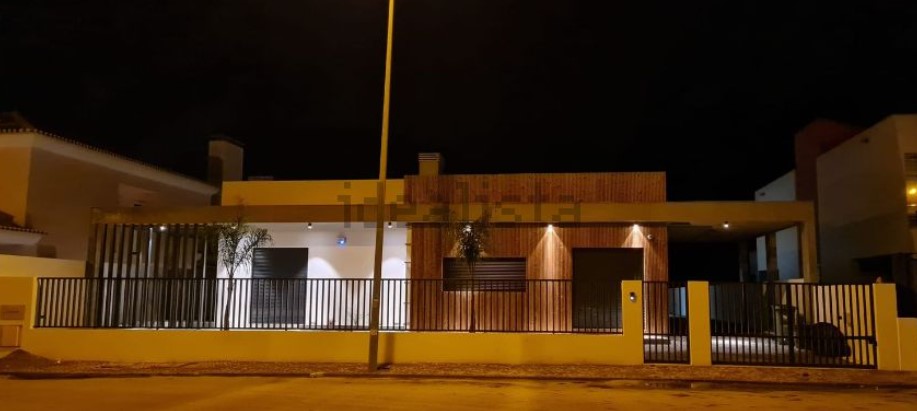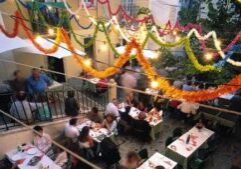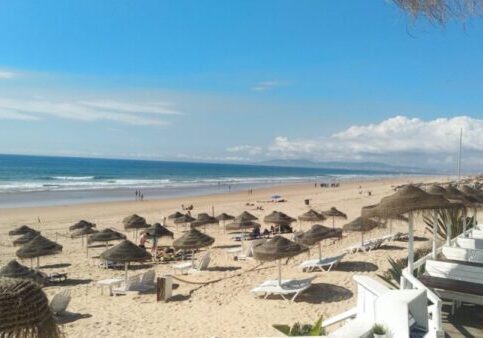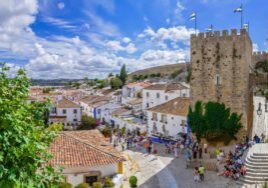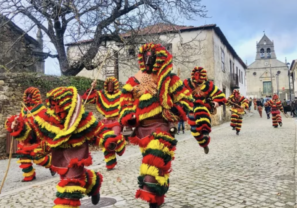Top 30: Portuguese expressions you should know
![]()
When you live in a country, mastering its language is important. I talk about this in my article 10 tips for learning Portuguese. Today, I’ve decided to share with you the many Portuguese expressions, some of which, when translated literally, can make you smile. And smiling is exactly what we all need right now. In this article, I’d like to share with you a few Portuguese expressions that you might find useful in your everyday life.

“Com uma perna às costas” => “With a leg on your back”
In Portugal, when an action is simple to perform, you don’t do it “with your fingers up your nose” but “with your leg on your back”. Both are body parts, but they’re a little different all the same! And I must admit that the leg over the back seems a lot more complicated to me than the finger up the nose, don’t you think?

“Quem tem boca vai a Roma! “=> “Who has a mouth, goes to Rome”
This is one of the Portuguese expressions I find interesting. Nowadays, when we’re looking for directions, we tend to go straight to our smartphone and look for the answer, when we could just as easily ask in the street for directions. This Portuguese expression means that a person who dares, who has the courage to ask for the information they need, will achieve their goals more easily than someone who has a more passive attitude and just looks at their phone. This expression is used to encourage people to be active in solving their problems.
“Meter o Rossio na rua da Betesga” => “PutRossio in Betesga”
This expression is used to designate something very complicated or impossible to achieve. Betesga is Lisbon’s smallest street(35 meters ), while Rossio is one of Lisbon’s largest squares. It is therefore impossible for Rossio Square to fit into Betesga Street. This Portuguese expression is the equivalent of “bottling Paris”.

“Partir o côco a rir” => “Break the coconut laughing”
Coconut is a difficult fruit to crack, requiring strength and control. Have you ever tried to crack a coconut? This Portuguese expression is used when a person laughs so hard they lose control of their laughter. It’s a bit like “pleurer de rire” in French.
“Estar com o estômago nas costas” => “To be with a stomach on your back”
In Portugal, when someone is ambitious, they are said to have a stomach on their back. In French, it’s also a question of physique, but not the same part, since the person is said to have long teeth. Would you rather have a stomach on your back or long teeth? Tough choice!
“Olho clínico” => “Clinical eye”
This is one of the Portuguese expressions that I find very accurate in its meaning. In principle, doctors are people who pay close attention to detail, and must not miss any clue that may identify a possible illness. So, in Portuguese, when someone is very attentive, they are said to have a clinical eye. In French, this is called l’oeil du lynx rather than l’oeil du médecin.
“Estar em palpos de aranha” => “To be caught in the jaws of the spider”
If you find yourself in a complicated situation you’ll be, in France, in “de beaux draps”, which is actually pretty cool, isn’t it? But in Portugal, it’s a little more scary, because you’ll be in the jaws of a spider. So don’t end up in a bad situation in Portugal!
“Nariz empinado” => “blocked nose“
Not to be confused with “nariz entupido” which means “blocked nose”. “Nariz empinado” means to have one’s nose in the air, and is often accompanied by the gesture of touching the tip of one’s nose. It’s used to describe a person who always wants to be right.
“Mudar de pato para ganso” => “From duck to goose”
In France, when you quickly change the subject, you’re said to be jumping from rooster to donkey. It’s a rather strange expression, but it’s precisely the fact that the two animals have nothing to do with each other that explains it. In Portugal, there’s no such thing as a rooster or a donkey, but we’re still in the animal world as we go from ducks to geese.
“Ter as mãos largas” => “To have large hands”
To be generous in Portuguese translates as “to have large hands”, whereas in France we use the pretty expression “d’avoir le coeur sur la main”. I admit I find the French expression more “fleur bleue”.
“Sair à francesa” => “Sortir à la française”
This expression means “to sneak out”. This Portuguese expression corresponds to the French “filer à l’anglaise”. While the French filer à l’anglaise, the Portuguese prefer to filer à la française.
“Fazer uma tempestade num copo de água” => “Make a storm out of a glass of water”
This Portuguese expression corresponds to the French expression “en faire tout un fromage”. The idea is to exaggerate a situation. It means insisting over and over again for very little.

“Fazer olhos de carneiro mal morto” => “Make eyes like a dead sheep”
When translated literally, this Portuguese expression can seem a little creepy. In French, it corresponds to the expression “faire des yeux de merlan frit”, which means to have a dead-eyed look. It’s used to describe a person who doesn’t react to a situation.
“Colocar gasolina no fogo” => “Put gasoline on the fire”
When someone stirs up trouble or makes things worse, in Portuguese we say they’re putting gasoline on the fire, whereas in France we put oil on the fire. Now, you might say, whether in French or in Portuguese, oil and gasoline will greatly fan the flames, so it’s best to avoid them!
“O gato comeu-te a língua” => “The cat ate your tongue”
It’s an expression used when a person, usually very talkative, is strangely quiet. In the 19th century, the cat was considered a keeper of secrets, so we can imagine that this is why this animal is chosen for this expression. In French, the expression “donner sa langue au chat” (“to give one’s tongue to the cat”) also refers to the tongue and the cat, but it doesn’t have the same meaning, since in the latter case, it’s a matter of giving up on giving an answer.
“Ir à bola com alguém” => “go to the soccer match with someone”
As you know, in Portugal, soccer is a religion, and many Portuguese people flock to soccer stadiums (well… that was in the “old world”). This popular expression is used when you sympathize with someone. The opposite expression is also used “não ir à bola com alguém” when you don’t get on with someone.
“Partir a loiça toda” => “Break all the dishes”
It means having the courage to take a step forward when everyone else is afraid to do so. It’s commonly used when someone has exceeded our expectations.
“A curiosidade matou o gato” => “Curiosity killed the cat”
This is the French equivalent of “la curiosité est un vilain défaut”. This popular expression is used to warn a person that harm can come if they are too curious.
“Dar água pela barba” => “From water to beard”
This expression is used when a person has a lot of work to do and is struggling to get by. In France, the expression is somewhat similar, as some would say “to be under water”.
“Ficar em águas de bacalhau” => “Staying in cod water”
This Portuguese expression evokes the idea of failing, making a mistake or being late.

“Vai pentear macacos” => “Go and comb the monkeys”
This is one of those not-so-nice Portuguese expressions. Basically, it’s used to chase away someone who’s annoying you. The French “va te faire …”. There are lots of ways of saying it in Portuguese, but one of them is “va peigner les singes”.
“Agora é que a porca torce o rabo” => “Now the sow is twisting her tail”
This is an expression used to refer to a difficult situation. It means that things are about to get tough.

“Como um burro/boi a olhar para um palácio” => “Like a donkey/ox to look at a palace”
This expression is often used to refer to a person who stares in amazement at something without really understanding what’s going on.

“Tirar o cavalinho da chuva” => “Take the little horse out of the rain”
This expression means “let it go” or “don’t make a fuss”. It is also used a lot in Portugal with young children when they want to do something that is not yet for their age.
“À grande e à francesa” => “En grand et à la française”
When the Portuguese “do things in style”, they do them “en grand et à la française”.
“Bater as botas” => “Beat the boots”
This expression is a way of saying that someone has passed away. It’s equivalent to the French expression “passer l’arme à gauche”.
“Bater o dente” => “Beat the tooth”
This Portuguese expression is commonly used and easy to guess because it pictures the action well. It’s used when a person is so cold or scared that they clack their teeth.
“Engolir sapos” => “To swallow frogs”
This expression is used when you have to put up with a lot of disagreements, or when you have to listen to a lot of swearing and shut up without defending yourself. It’s equivalent to the French “avaler sa salive”.

“Dor de cotovelo” => “Pain in the elbow”
This expression means to be jealous. When you bang your elbow against something, the pain is often severe. You know what I mean! So elbow pain is strong like the feeling of jealousy. Nowadays, it’s common to use this expression to describe the spite caused by jealousy, but also the sadness caused by disappointment in love.
“Muitos anos a virar frangos” => “Many years of turning chickens”
This expression is used to refer to a person with a lot of experience.
“Ter lata” => “To have a can”
This expression indicates a person with guts, nerve, audacity. It’s widely used in Portugal
“Feito ao bife” => “Made with steak”
When a Portuguese says he’s “feito ao bife”, it means he’s in trouble, facing a complicated situation. It would be like saying “être dans le pétrin” in French
In conclusion
As you’ve seen, the Portuguese language is rich in expressions, and this is just a sample. What are your favorite Portuguese expressions?
Join us on social networks!
- Facebook group “Amoureux du Portugal”,
- Vivre au Portugal” Facebook page
- Instagram ” Living in Portugal
Receive the latest blog posts and our selection of properties every month.
* required fieldFirst name * *Last name Telephone E-mail address * *Current city of residence Area of interest: *
- Buying a property in Portugal
- Renting a property in Portugal
- Nothing special in mind
Date of arrival in Portugal How can we help you? * * Please contact me:*
- Quickly please
- Later please
Region of interest *
- Almada
- Aroeira
- Seixal
- Setubal
- Other
You can view our Privacy Policy and Termsand Conditions here
Articles Populaires
dernières annonces

2 bedroom apartment with sea view, 10km from Lisbon and 2km from the beaches
Rua da Bica, 103Discover this magnificent 2 bedroom apartment with views of Arriba Fóssil and the sea, 2km…
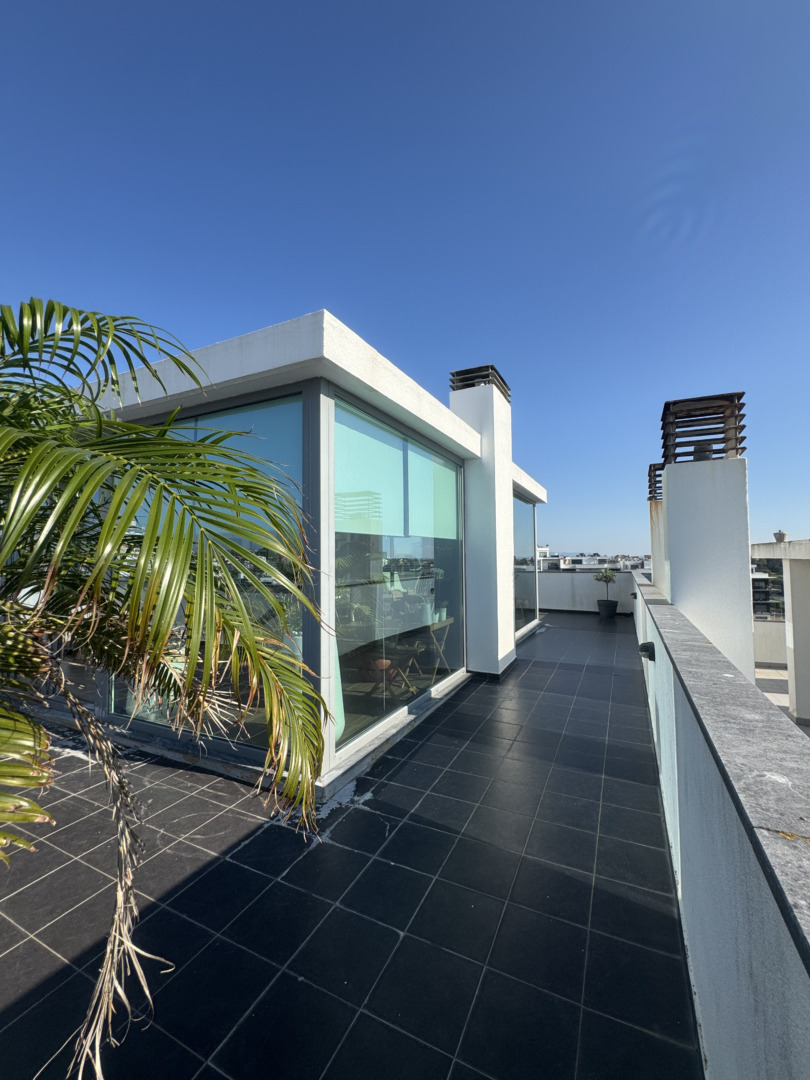
Duplex apartment with sea view 15 minutes from Lisbon
rua Santa Teresa 7Bedroom + duplex apartment with sea view and 15 minutes from Lisbon.
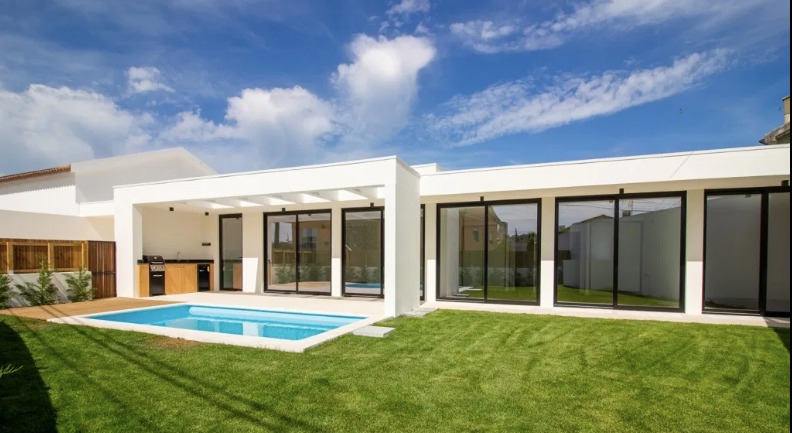
Single-storey house with swimming pool
Just a few meters from the magnificent bay of São Martinho do Porto, lies this…
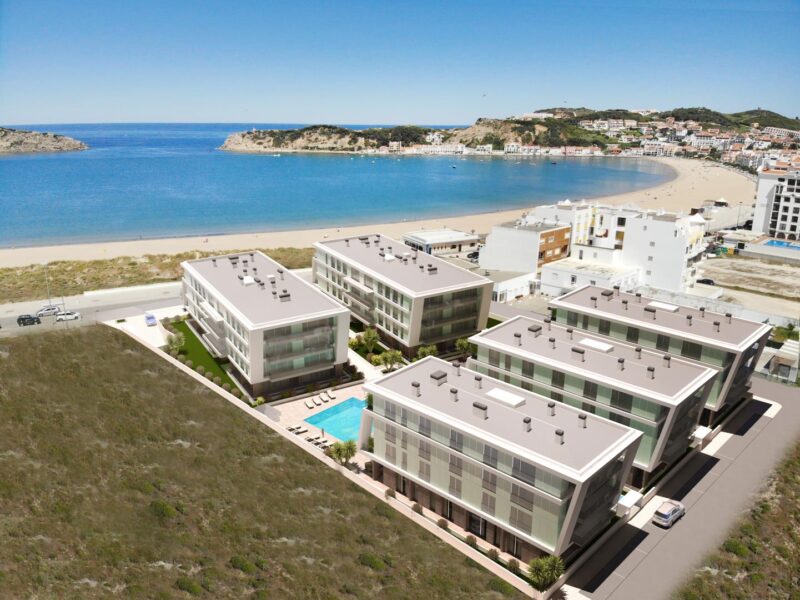
Condominium apartments facing the sea
São Martinho do PortoBeautiful apartments in São Martinho do Porto “Janela da Baía”! Located in the heart of…

Villa already finished and ready to move in: 4-suite bungalow on 750m2 plot in a quiet area of Azeitão
Rua de ParisHouse already finished and ready to move into! Close to shops and services, quick access…

Magnificent house with basement, indoor and outdoor pool in Verdizela/Aroeira
Verdizela/AroeiraNew turnkey project: magnificent single-storey villa, 498m2 in surface area, high-end finishes on a 1875m2…

Luxury apartment on the edge of a nature reserve
Your modern, spacious apartment between the beach and Lisbon’s capital. – Beach 5min – Golf…
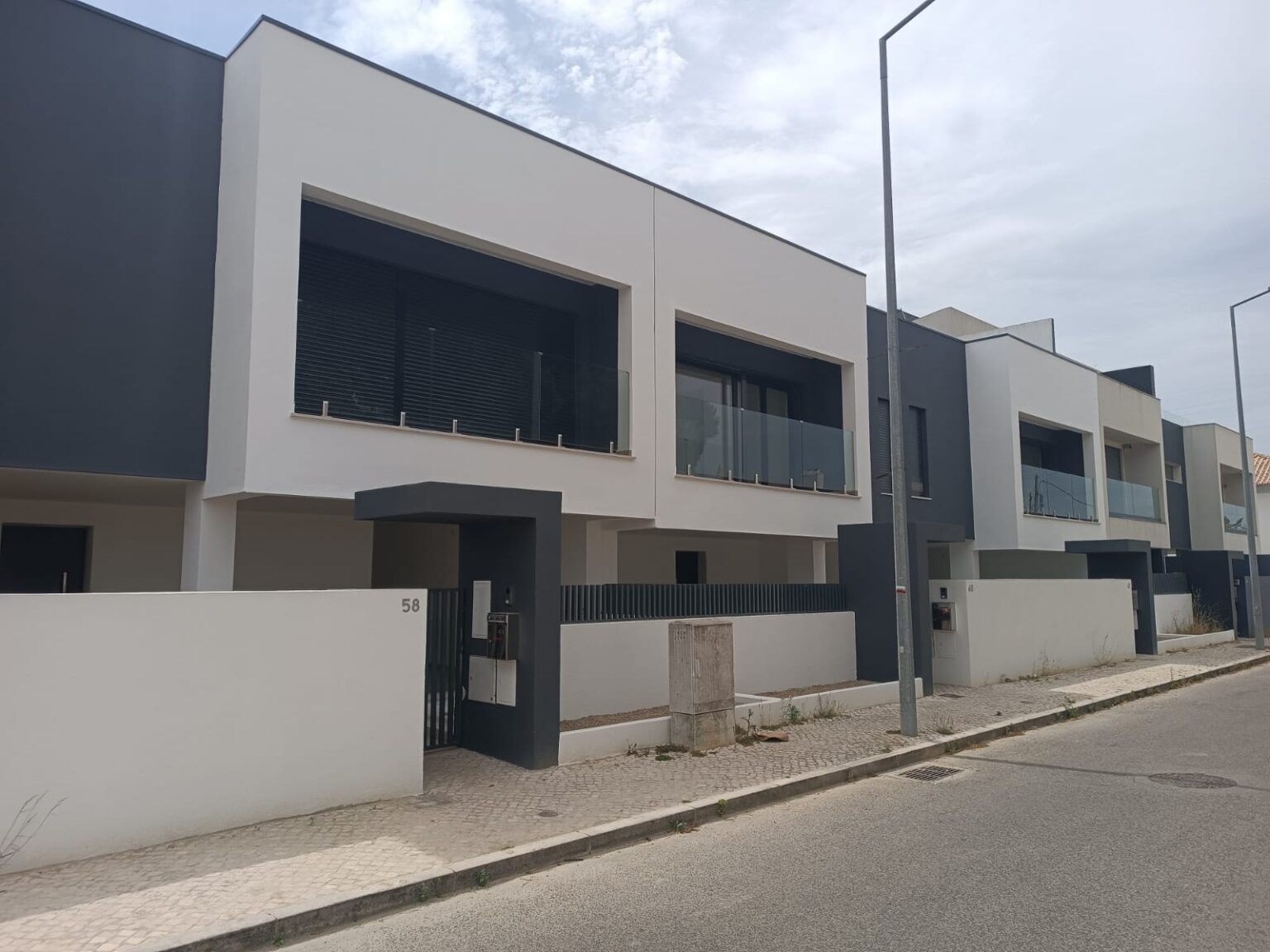
House T3 1 10 min from Lisbon and 5 min from the beaches
PêraREADY TO MOVE IN! New T3 1 ready-to-live-in house in a quiet, rural neighborhood with…

4 bedroom villa with pool and jacuzzi in Aroeira
rua são miguelModern, minimalist architect-designed house with exceptional details in a quiet location in Aroeira 2-storey house…
Inscrivez-vous à notre newsletter
Recevez chaque mois les derniers articles de notre blog "la vie au Portugal" et notre sélection de biens immobiliers à vendre.



